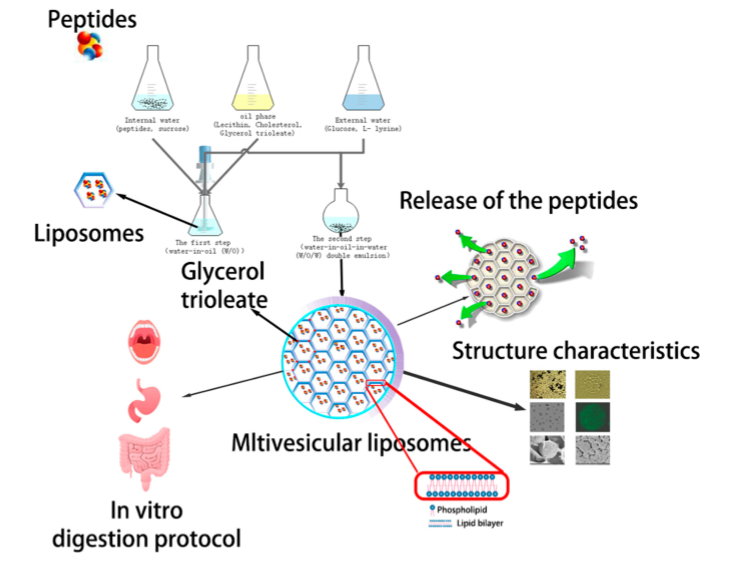2019-Multivesicular Liposomes for the Sustained Release of Angiotensin I-Converting Enzyme (ACE) Inhibitory Peptides from Peanuts: Design, Characterization, and In Vitro Evaluation
The multivesicular liposome (MVL) provides a potential delivery approach to avoid the destruction of the structure of drugs by digestiveenzymes of the oralcavity and gastrointestinal system. It also serves as a sustained-release drug delivery system. In this study, we aimed to incorporate a water-soluble substance into MVLs to enhance sustained release, prevent the destruction of drugs, and to expound the function of different components and their mechanism. MVLs were prepared usingthesphericalpackingmodel. Themorphology,structure,sizedistribution,andzetapotentialof MVLs were examined using an optical microscope (OM), confocal microscopy (CLSM), transmission electron cryomicroscope (cryo-EM) micrograph, a Master Sizer 2000, and a zeta sizer, respectively. The digestion experiment was conducted using a bionic mouse digestive system model in vitro. An in vitro release and releasing mechanism were investigated using a dialysis method. The average particle size, polydispersity index, zeta potential, and encapsulation efficiency are 47.6 nm, 1.880, −70.5±2.88 mV, and 82.00±0.25%, respectively. The studies on the controlled release in vitro shows that MVLs have excellent controlled release and outstanding thermal stability. The angiotensin I-converting enzyme (ACE) inhibitory activity of ACE-inhibitory peptide (AP)-MVLs decreased only 2.84% after or aladministration,and ACE in hibitory activity decreased by 5.03% after passingthrough the stomach. Therefore, it could serve as a promising sustained-release drug delivery system.




